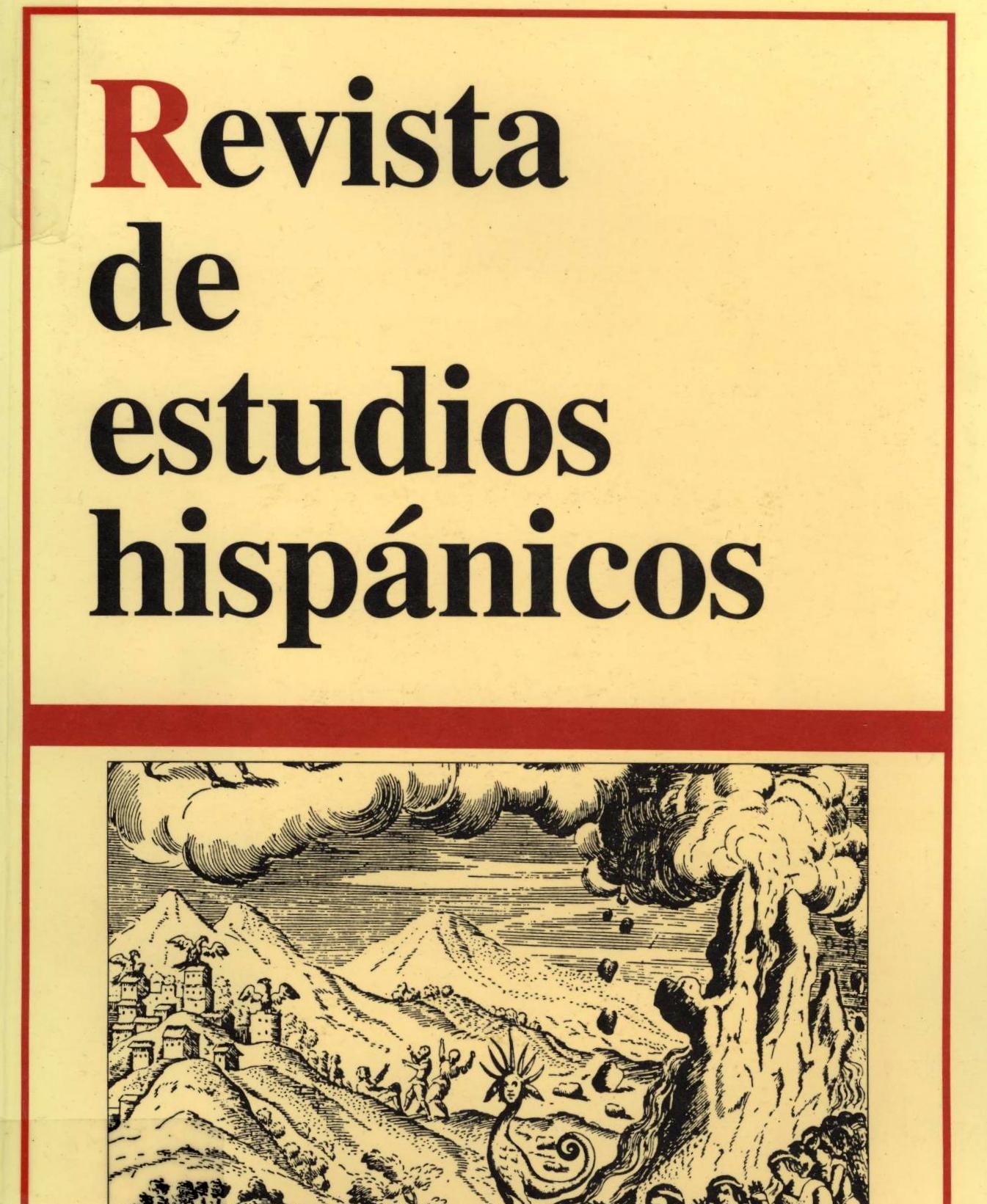Resumen
The purpose of this essay is to highlight Oviedo's discursive practice in the Historia general y natural de las Indias as it articulates Spain's imperial ideology through the image of gold.2 Placed midway between the Middle Ages and the Renaissance, Oviedo's conception of history is based on the twofold ideas of providence and fortune, a fact that merits special attention if one is to make visible the ideological factors that hide behind the author's discursive practice in the Historia. By carefully looking into it, the reader opens the path for the unveiling of Oviedo's differential treatment of New World historical experience as it was dictated both by prevailing ideology, on the one hand, and by the author's moral misgivings, on the other. These two contradictory forces Oviedo reconciled by channeling the doctrine of providence and fortune into two diverging discursive directions. Also, by tracing the path of Oviedo's dual discursive practice back to a diversified concepion of history in terms of providence and fortune, a hermeneutic move is deployed that works in two different ways. First, it points out the strategies that historical representation employs as it is constrained to face up to realities that question, and thereby threaten, the legitimacy of the imperial project. Second, it addresses the mystifying effects that such strategies produce in the historical vision, and brings into view the aberrations that historical discourse undergoes in its atrophy and baroque image. In Oviedo's dialectics between imperial ideology and baroque dissolution, gold in the New World plays a central role. At one extreme of this dialectics gold discovered in the Indies polishes the image of empire as the instrument of Divine Providence, and it becomes a powerful ally of official ideology. At the other extreme, at a point where ideology melts into the eschatology of funereal baroque, gold is no longer the shiny dies that evince the ficticious goods promised in official discourse, it is instead the faithful servant of fortune in the ruin of man. In Oviedo's view of history the path that gold traces between providence and fortune is the same path that goes from the optimism of ideology at the service of empire to its final dissolution in the baroque image that crowns individual disaster. This much the Historia makes clear, and by doing so it becomes a remarkable forerunner of that peculiar chiaroscuro that would eventually mark the Spanish baroque as one of its main characteristics.

Esta obra está bajo una licencia internacional Creative Commons Atribución-NoComercial 4.0.

